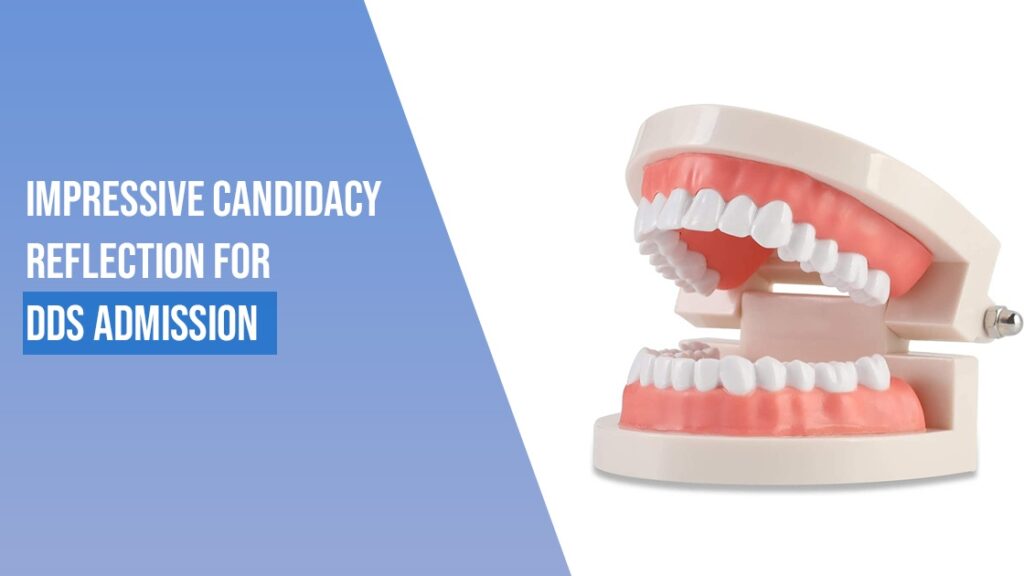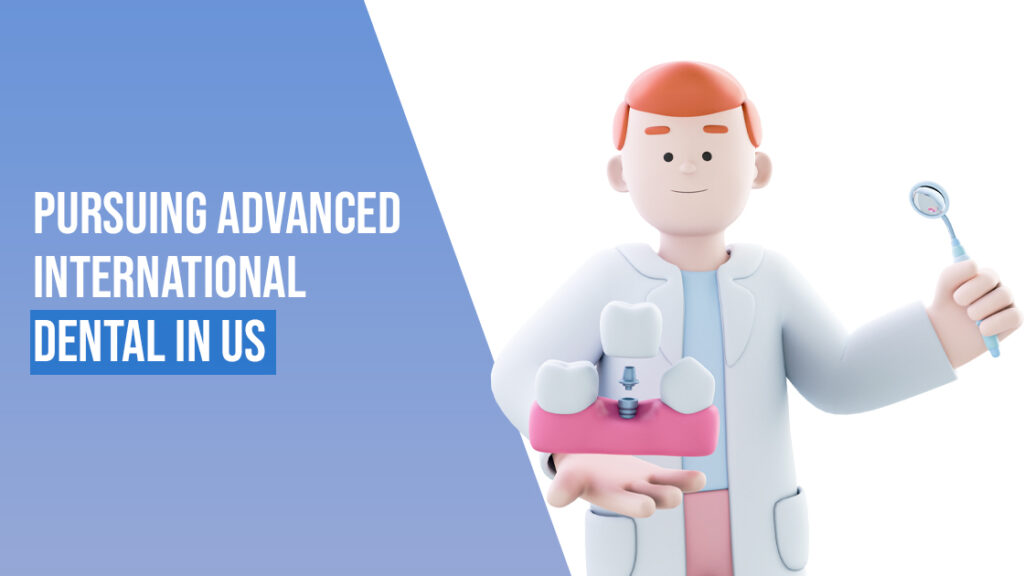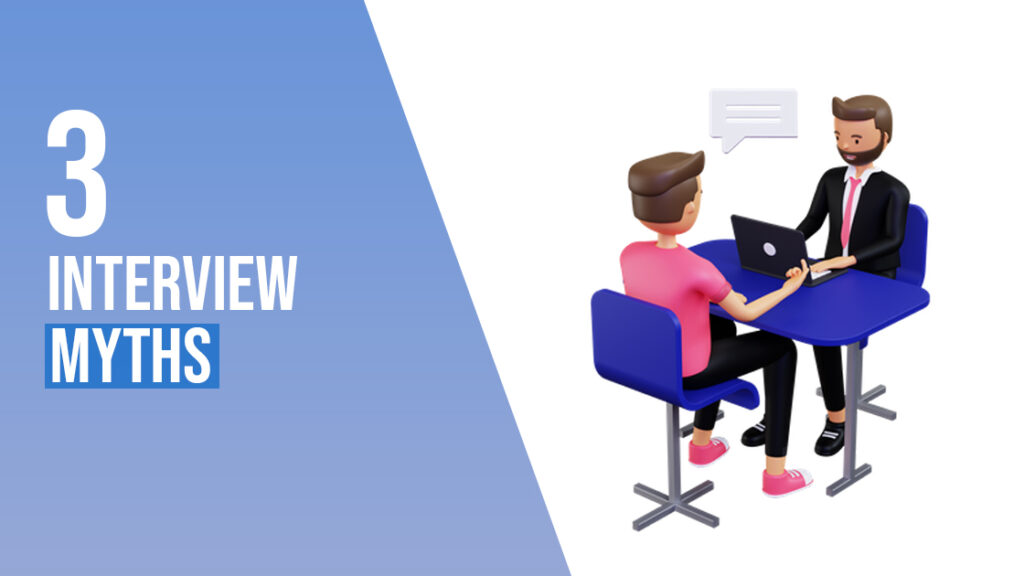Embarking toward a Master of Public Health (MPH) is exciting, but `navigating the MPH application process can be overwhelming. Remember, behind the formalities of the MPH application process, a human narrative is unfolded. Approach it with authenticity, and you will apply for an MPH Application and embark on a transformative journey toward making a meaningful impact in public health.
Here’s a more human touch to guide you through the steps of MPH Application :
Step-by-Step Guide to the MPH Application Process:
1. Soul-Searching:
Before diving into MPH applications, take a moment for some introspection. What’s driving you towards an MPH? Reflect on your passion for public health and how this advanced degree aligns with your personal and professional goals.
2. University Hunt:
Explore MPH programs like a treasure hunt. Delve into the details of each university, considering factors like program focus, faculty expertise, and that intangible feeling of connection. It’s not just about a degree; it’s about finding your academic home.
3. The Prerequisite Puzzle:
Check the prerequisites carefully (e.g., in biology, statistics, or social sciences) and relevant work or volunteer experience. It’s like putting together a puzzle. Ensure your bachelor’s degree is from an accredited institution and confirm if there are specific coursework or experience requirements. Each piece matters.
4. Conquering Standardized Tests:
Standardized tests may seem like dragons to slay. Equip yourself with preparation and face them bravely. Remember, they are but one chapter in your saga – not the entire tale. You usually need to take TOEFL or IELTS and the GRE for MPH.
5. Crafting your story:
Crafting a compelling Statement of Purpose (SOP) for your Master of Public Health (MPH) application is crucial. It’s your opportunity to showcase who you are, why you’re passionate about public health, and how the MPH program aligns with your aspirations
Here are some key points to consider when writing your SOP for MPH Application:
- Introduction: Hook the Reader: Begin with a captivating introduction that grabs the reader’s attention. You might share a personal anecdote, quote, or experience that ignited your interest in public health.
- Your Motivation: Passion Unleashed: Clearly express your passion for public health. Describe the experiences or events that fueled your interest and led you to pursue an MPH. Be genuine and heartfelt.
- Academic Background: Connect the Dots: Relate your academic background to your interest in public health. Highlight specific coursework, projects, or research experiences relevant to the field.
- Professional Experiences: Showcasing Experience: Discuss any relevant work experience or internships in the public health sector. Share how these experiences shaped your understanding and strengthened your resolve to contribute to the field.
- Research and Publications: Scholarly Pursuits: If applicable, mention any research projects, publications, or presentations. Emphasize how your academic and research endeavors have prepared you for the challenges of an MPH program.
- Why This Program: Specific Program Fit: Explain why you are drawn to the particular MPH program you’re applying to. Mention faculty members, unique resources, or specializations that align with your goals.
- Career Goals: Painting the Future: Clearly outline your short-term and long-term career goals. Show how the MPH program is an integral part of your professional journey and how it will equip you to make a meaningful impact.
- Unique Contributions: Your Unique Offering: Discuss what unique perspectives, skills, or qualities you bring to the MPH program. How will you contribute to the diversity and richness of the academic community?
- Global Perspective (if applicable): Global Health Interest: If your interests include global health, highlight this and explain how an MPH will enable you to address health challenges on a global scale.
- Conclusion: Closing on a Strong Note: Summarize your key points and reiterate your enthusiasm for the program. Conclude with a powerful statement that leaves a lasting impression.
- Edit and Proofread: Polished Presentation: Ensure your SOP is well-written, grammatical-error-free, and adheres to any specified word count. Have others review it for feedback.
Remember, your SOP is a personal narrative that should convey your academic and professional achievements and your authentic self. Be genuine, passionate, and specific in illustrating how an MPH aligns with your journey and aspirations in public health.
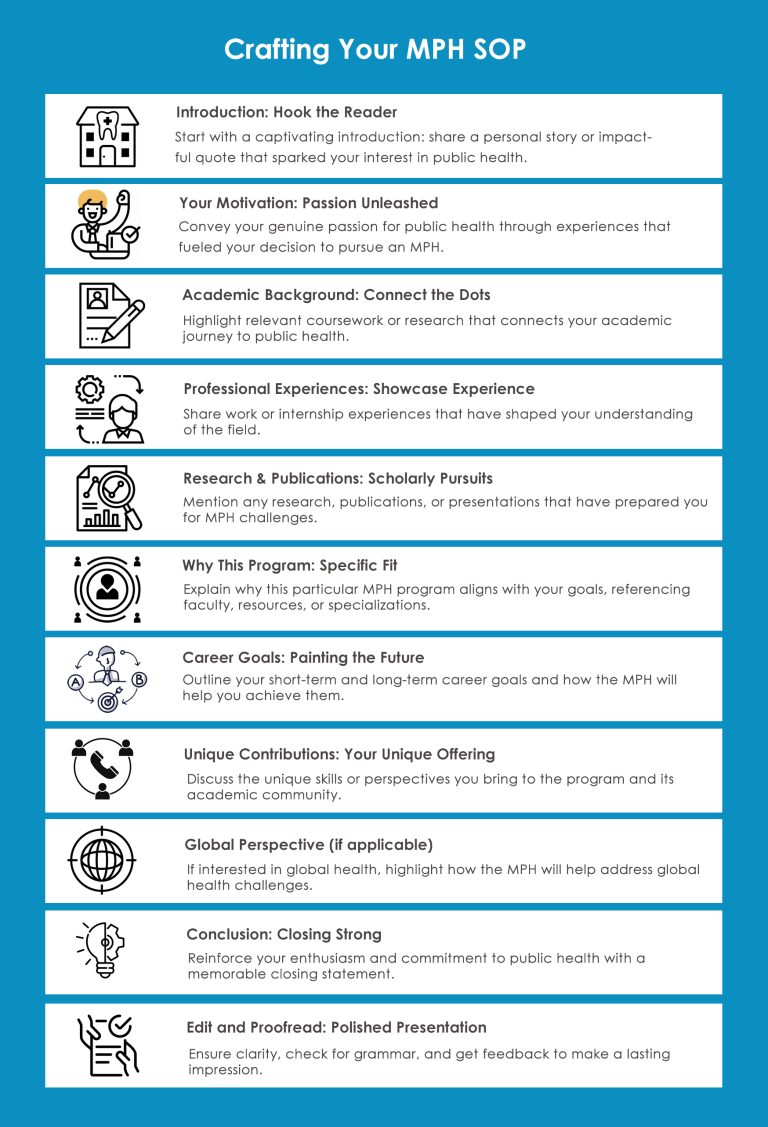
6. Prepare MPH Application Materials:
- Transcripts: Request official transcripts from all colleges and universities you have attended.
- Letters of Recommendation: Typically, programs require letters of recommendation from professors, employers, or professionals who can speak to your qualifications.
Usually, you need three letters of recommendation when you apply through SOPHAS. It is the centralized application service for schools and programs of public health, simplifying the process of applying to public health programs. You start by selecting the programs you wish to apply to; then, you submit one application that includes all necessary materials. Once received by SOPHAS, your application and materials go through a verification process before being transmitted to all your selected programs. - Statement of Purpose: As we discussed above in detail
- Resume/CV: Prepare a detailed resume or curriculum vitae highlighting relevant education, work experience, and skills.
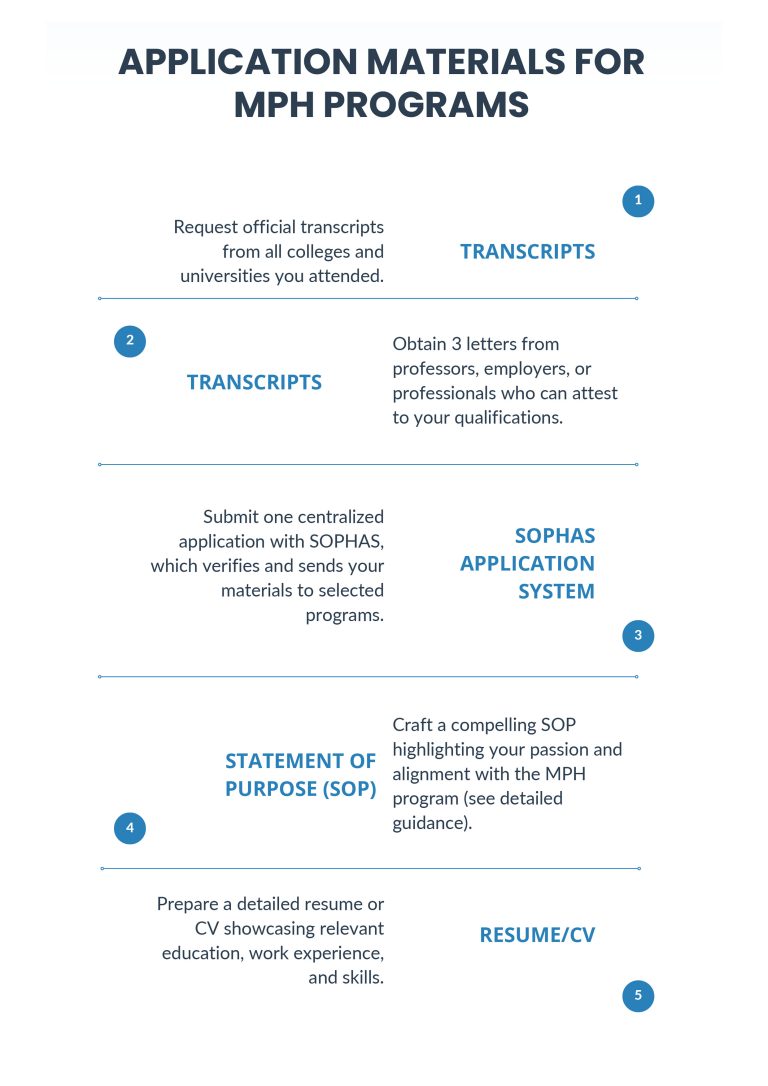
7. Application Submission:
Complete the online MPH application form the university or institution provides. Ensure all required materials, including transcripts, letters of recommendation, and test scores, are submitted before the deadline.
8. Interview (if required):
Some programs may require an interview during selection. Prepare for potential interviews by researching common public health topics and being ready to discuss your motivations and goals.
9. Financial Aid and Scholarships:
If needed, explore financial aid options and scholarships offered by the institution or external organizations. You can always reach out to the schools you are interested in. Some schools have priority deadlines to be considered for the scholarships.
10. Submit Application Fee:
Pay any required application fees. Some programs may offer fee waivers for eligible applicants. It can range from $50 to $200
11. Monitor Application Status:
Track your MPH application status and respond to any additional requests or communications from the admissions office.
Always make sure you apply to CEPH-accredited universities in the US. You can go to the centralized application portal- SOPHAS- to see the list of universities and majors. You can also view the list on the CEPH website:
List of Accredited Schools and Programs– https://ceph.org/about/org-info/who-we-accredit/accredited/
There are different majors for MPH, such as Epidemiology, Biostatistics, Health Policy, Environmental Health, Social and Behavioral Sciences, Public Health Nutrition, Public Health Management, Global Health, and Population Health/ Medicine.
Curriculum:
I attended Hofstra University, School of Health Sciences in Long Island, NY, which had General Public Health.
Things that were useful during my MPH program:
- Networking with professors and alumni can help you get a job
- Look for internship/ job opportunities through career fairs and connections through professors and alumni
- Look into the opportunities that you are interested in. There are numerous jobs out there in different fields, such as research, data analytics, population health
- Try to get a job where you do an internship. Meet with professionals in different departments
- Getting a job on a visa where you need sponsorship is hard, but many opportunities will provide you with sponsorship
- Networking is a key
My internship picked my research interest. However, I could not get a full-time job in the same field. I got into the data analytics field, where I learned many skills such as programming languages and Electronic Health Record (EHR) systems, which also helped me understand various EHR systems in Dentistry. My research experience during my MPH led me to explore research avenues. It helped me get research opportunities in Dentistry, and I was able to apply my data analytical, critical thinking, and problem-solving skills.
In Conclusion, my MPH degree strengthened my path toward Dentistry, and I achieved my goal of studying DDS/ DMD in the US. With my MPH degree, I understand the US Healthcare system, Social and Behavioral Determinants of Health, Epidemiology, Biostatistics, Global Health, Environmental Health, and Qualitative and Quantitative Studies. My foundation for studying for a US degree got stronger, and this experience will lead me to learn and grow with a DMD degree.

